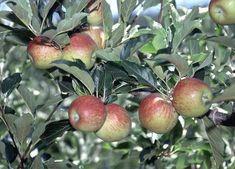
Scientists have made a potentially significant breakthrough in the search for cancer prevention techniques, with the help of apples.
An apple a day may help to keep bowel cancer at bay, researchers have revealed.
Procyanidins, natural chemicals in the fruit, are the secret to new claims by a team from the French National Institute for Health and Medical Research.
Laboratory testing on animals shoed that the chemicals significantly reduced the number of precancerous lesions.
These findings could lead to new cancer treatments, and were presented at a meeting of the American Association for Cancer Research.
Parallel research suggests that procyanidins, a member of the polyphenol family, alter signalling pathways that control the process by which cells commit suicide at the end of their natural life, this thwarting the emergence and spread of cancer
Lead researcher Dr Francis Raul said: "These studies not only offer insights into the mechanisms of the chemopreventive properties of these polyphenols, they also offer proof of their potential to prevent colon cancer."
Polyphenols of various types are concentrated in the skin of apples. They are antioxidants, preventing molecules called free radicals from inflicting damage on the body's tissue.
Scientists fed rats who had been injected with a substance known to trigger colon cancer a liquid containing apple-derived procyanidins.
After about six weeks the rats had about half the number of precancerous lesions in their colons as counterparts on a regular diet.
Raul said: "For now, our work suggests that eating the whole apple, including the skin, might offer some anti-cancer benefits.
"That is certainly something we can comfortably do without further study."
• Another study by US-based researchers said that people who consume three or more servings of vegetables per day - not including potatoes - are 40 per cent less at risk of developing non-Hodgkin lymphoma (NHL), a type of lymph cancer than people who eat less than one serving a day.
Sara Hiom, of Cancer Research UK, said: "As yet there is no solid evidence to confirm any single fruit or vegetable type as having 'cancer preventive' properties for humans.
"We continue to promote increasing intake of a wide variety of fruits and vegetables as part of a healthy diet."
Sam Heggie, of World Cancer Research Fund, added: "A lot of recent research has shown that a variety of vegetables may act in a way to help prevent bowel cancer.
"WCRF UK has embarked on the biggest study ever to bring all these studies together, which we hope will provide the definitive answer.
"Our own research has shown that we can reduce our risk of developing cancer by between 30-40 per cent by making simple lifestyle changes such as eating more fruit and vegetables, taking regular exercise and watching our weight."



